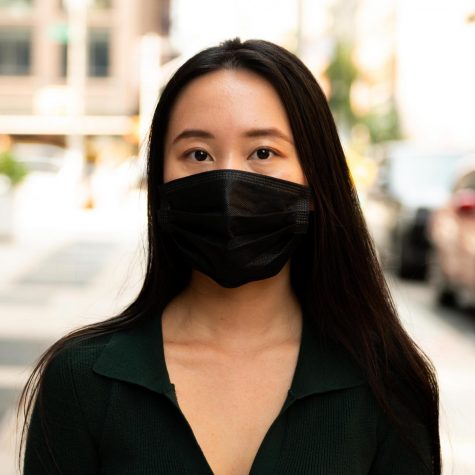Nowadays, Instagram poetry is seemingly everywhere. On social media, small aestheticized squares of text dominate the feeds of millions of people. These short confessional poems are often riddled with endless aphorisms and accompanied by doodles of flora and fauna or women’s bodies. Ostensibly harmless, this new trend of Instagram writing is extraordinarily detrimental to the art of poetry. Rupi Kaur and others like her who propogate this new mode of poetry are exploiting the emotions of young women and creating a demand for poetry that lacks real depth
The truth is that evaluating the quality of poetry has always been a difficult task. Due to its subjective nature, it can be difficult to define whether or not a piece is objectively good or bad. However, Kaur’s work can be likened to the fast food of poetry; it is quick and oftentimes enjoyable, but is in no way good for you.
Kaur’s short poems rely on cheap devices and cliched wisdom to appeal to readers. As a result, Kaur neglects the intricacies and thematic breadth that make poetry fascinating to read. Kaur copies legendary poets like Pablo Neruda; in her poem, she writes, “your voice does to me/ what autumn does to trees,” echoing one of Neruda’s most famous lines, “I want to do with you what spring does with the cherry trees.” This instance is a perfect example of the fast food effect. Kaur takes a gorgeous line and paraphrases it in more simplistic words, losing artistry and meaning in the process. She does this by eradicating certain details that add an understated elegance to Neruda’s line: after taking out the “cherry trees,” and substituting his action line with “your voice does to me,” the line sounds a bit emptier. The act of paraphrasing removes the intense romantic passion that lived in Neruda’s poetry.
Although many applaud Kaur for revitalizing poetry among young readers, she is representative of a disturbing new trend. Through her rhetoric and content, Kaur targets one distinct demographic to boost her sales: vulnerable teenage girls. Content marketed towards teens is rising in popularity with the advent of social media and streaming services, however Kaur’s poetry targets them in a way that feels more exploitative than enlightening.
Kaur touches on a number of subjects that profoundly affect millions, from body image and relationships to alcoholic parents. However, the way she approaches these subjects offers no real enlightenment or comfort. Instead of describing the feelings these issues evoke or offering a distinct perspective on the topic, Kaur almost invariably just name-drops these subjects without any real analysis. Yes, alcoholism is bad. Yes, girls should try their best to love themselves. But what else? The way Kaur approaches these themes is almost analogous to the ways massive corporations appropriate movements like gay rights or feminism to sell products. By commodifying emotion and encouraging other young poets to do the same, Kaur is exploiting the authentic experiences of young girls for clicks and sales.
As fellow Instagram confessional poets such as Atticus and R.M. Drake quickly achieve celebrity status on social media, the public is shifting its focus to more simplistic poetry. Due to the emotionally evocative quality that poetry possesses, young people flock to the medium for representation and a creative outlet. However, Kaur’s work allows little room for analysis because of its reliance on aphorisms and other tricks that are meant to make poetry sound “deep.” Readers everywhere must not let accessibility take precedence over the elements that make poetry beautiful in the first place.
Opinions expressed on the editorial pages are not necessarily those of WSN, and our publication of opinions is not an endorsement of them.
A version of this article appeared in the Monday, Sept. 16, 2019 print edition. Email Ashley Wu at [email protected].

























































































































































A • Feb 20, 2024 at 1:10 pm
Rupi Kaur’s work helps introduce readers to poetry, which is great– because art should be shared. Yet all the same, her work makes people despise poetry. I’ve seen so many people shun poetry because the only type of “poetry” they’ve ever read is Insta poetry, which safe to say, is pretty bad. Many people tend to confuse Insta poetry with contemporary poetry, which are completely different things (!!). The issue with Kaur’s work is the fact that she doesn’t really dare to explore or go any further than just surface level. The topics and phrases are interesting, but they should be explored more. Kaur’s work therefore, becomes shallow– her work leaves people feeling like they need more. People can enjoy whatever poetry they’d like, but they should also find more work past Rupi Kaur’s and Insta poetry.
Jackie • Jul 4, 2021 at 8:28 pm
Excellent and we’ll informed point. What Rupi Kaur is doing to poetry is inexcusable. Using clique sentiments that lack real depth or knowledge and using them to sell legitimizing low effort and simple excuses for complex feelings that deserve depth and a wisdom of experience to untangle. Compare her garbage to poems like “Elegy at. Country Churchyard” and one can understand why her poetry should be shunned.
Mac • Mar 22, 2021 at 6:38 pm
A wildly elitist and gatekeeper-y take on something that is ultimately harmless and in many cases, an open door to poetry. What exactly is wrong with making young women feel seen in poetry? I personally don’t enjoy this style of poetry, but I do enjoy inclusion and accessibility to the art form I hold so dear. The last line is what drives it home for me, “Readers everywhere must not let accessibility take precedence over the elements that make poetry beautiful in the first place,” that access is not important to you and that you do not especially care about the “public” but rather that people know…that you you…that it is “bad.” Letting people enjoy things is easy.
Gigi • Mar 21, 2021 at 11:24 am
Wholeheartedly disagree. This article is elitist and highlights a key issue that is wrong with the fine arts. Poetry need not remain an artform that only those with access to the finer poets can appreciate, interpret, and identify with. The poems might not be the best at ‘enlightening’ others, but they do validate. And that is a big deal. Some people never had access to a place where they could deconstruct Pablo Neruda or other greats, and pinning the problem on people who want to make platforms that seek to validate and ‘see’ others, so to speak, in a quick and efficient way, especially in these times, is in my mind, an attempt at exclusion. I think Instagram poetry, at the absolute worst, is harmless, and at its best, might encourage someone to dig deeper into emotions/poetry/themselves and validate them in ways that no other has done before. Fine poetry is great in its own way, and Instagram poetry is great in its own way.
M • Apr 1, 2021 at 1:20 am
I agree with you to some extent. If something is encouraging more people to get into poetry, you can’t exactly be mad at it. But I can’t help but think about what it says about us as a generation of readers and what it means for the future of writing. Her book Milk and Honey was #1 for a whole year, and I believe a well written book deserved to be there instead. Literature is not subjective, your enjoyment for it sure is, but at the end of the day there is good poetry and bad poetry, and Rupi Kaur is just not good.